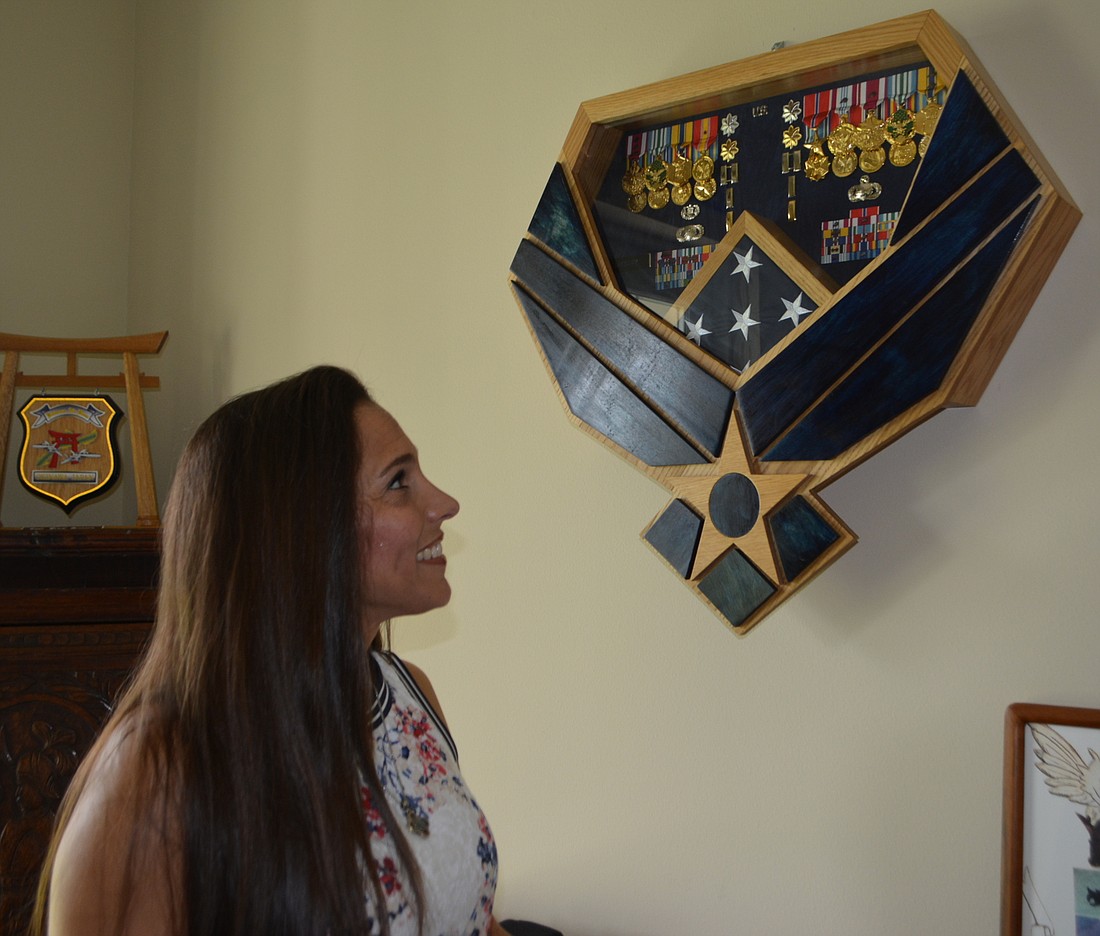- November 23, 2024
-
-
Loading

Loading

The daughter of a Dominican Republic immigrant, Sarasota's Gregory, like her husband, District 73 State Rep. Tommy Gregory (R), retired after a 20-year career in the U.S. Air Force. Growing up with her father being an Air Force veteran and mother an immigrant, she learned early to respect America's freedoms. That respect was strengthened after she graduated from the U.S Air Force Academy and through her service, which included a deployment to Baghdad, Iraq, in 2010-11. She now works as a human relations director.
"My family was very patriotic overall and had a great deal of pride in our country. My dad, Eric Stone, served in the Air Force. My mother, Domini Stone, was an immigrant from the Dominican Republic. Our freedoms were very personal to her. She had a great appreciation for what this country had to offer. Our flag was flying every day."
"My mom came to this country when she was 8 or 9. She talked to me about what it was like to find the opportunities she had here. My grandmother would take the money she earned and she would invest in property; she would invest in the American dream. She was living in the Bronx. My mother told us the story of how she got an apple for Christmas one year, and that was the best thing. They were trying to build a life here. And my parents eventually got seed money from my grandmother."
"The interesting part is that we didn't have to talk a lot about our freedoms. It was the way we grew up. There was never a moment that I didn't think I could be anything I wanted to be. I visited the Dominican Republic as a child and then (husband) Tommy and I took the kids (Grant, now 17; Eric, 16; Noah, 13) to the Dominican Republic and lived there a year after we retired (from the military). We wanted to show the kids that aspect of life. One thing we learned, was when you immerse yourself in the culture, the Dominican Republic's people were warm, loving and protective. Tommy and I took Spanish immersion classes. But it was exposure to a different way of life. It gives you appreciation for our freedoms."
"It was like that living in Iraq and in Japan (with the Air Force), which gave me appreciation for what we have here, things we take for granted, like safety. We live without bars on our windows here, which is a part of life in other countries. The way I was brought up, I recognized when I was young that this was what we were protecting. But people shouldn't have to go overseas to recognize it. I remember a day when I was in Los Angeles, after I graduated from the Air Force Academy, when I went to Mass in the morning and at sunset I went to retreat to stand there and salute the flag. It was about God and country. I remember standing there thinking about how beautiful life is in our country. You don't have to leave our country to be in the tropics, the desert or the mountains. And this is not like the homogeneous cultures you find overseas. You go places (overseas) and you know who is Japanese or Indian or German. We stand out here as a heterogeneous culture and we have been able to make it work. We've been called a melting pot, a salad bowl. It's something to protect."
"We will continue to think about our freedoms. We've got friends who are serving and we try to instill these things ... respecting our flag, advocating for veterans, being involved ... in our children. These are things that everyone can do as a reminder of our freedoms, rather than just celebrating once or twice a year. We don't want to lose our patriotism and respect as the years go by. I saw somewhere where we are losing 400 World War II veterans a day now. We don't want to forget. I remember being on the military base and every movie we watched together started with the national anthem. I love that. It's simple things like that. It is a way to bring this heterogeneous culture together. How do we all become one? E pluribus unum. We need to find things that unite us."
"Teaching our kids is incredibly important. What is the saying ... 'Those who don't learn from history are doomed to repeat history?'" I do think people who don't serve find it easier to send our troops somewhere. They don't know the cost. So it is important to teach our children."